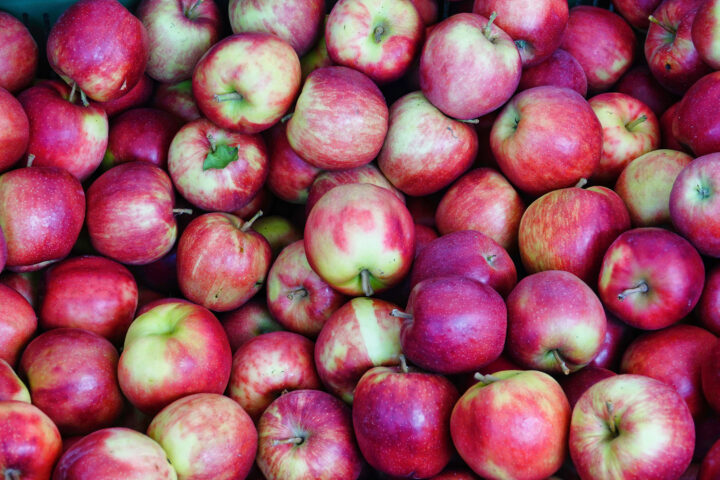«Politicians must avoid pushing prices up even more»
Unfortunately, the current political discussion appears to be moving toward greater state intervention and consumer education. This pushes up prices, writes Babette Sigg Frank in the Neue Zürcher Zeitung.
Wednesday, March 1, 2023
Food prices have risen by four percent over the past year. This is the highest increase in a long time. The extent to which these price increases will be felt in everyday life depends, of course, on the financial situation of individual households: Households with fewer financial resources will feel the price increases much more.
Yet it seems that consumers who base their purchase decisions on criteria other than just price are now feeling the pinch as well. The sudden bankruptcy of the Swiss health food group Müller shows that even consumers of health foods see food prices as an important factor when making purchases. There is an economic aspect to sustainability too. Food must be affordable.
Disenfranchised consumers
Food prices are also the result of political decision-making. Increasing the regulation of producers and consumers, closing off the market and making foreign trade more difficult, and impeding the ability of domestic producers to innovate does little to halt prices from rising.
Unfortunately, it currently looks like the discussion is moving toward greater state intervention and consumer education, which pushes prices up even more. The food “traffic light” labeling system, for example, has already been implemented. Known as the “Nutri-Score,” its goal is to provide information on how healthy or, indeed, unhealthy the food product in question is. Although the participation of suppliers in the system is still voluntary, a federal government report from December 2022 shows that the Federal Food Safety and Veterinary Office is taking an increasingly active role in this area.
The report says that far more than just state (i.e., taxpayer-financed) “communication measures” are planned for 2023. At the same time, it's still unclear whether these labels actually encourage healthier consumer behavior. This may be a trivial matter, but it shows that consumers are increasingly being guided in their purchasing decisions at their own expense and gradually disenfranchised.
The latest example is from the WHO which, if it gets its way, could see the tiger disappear from Frosted Flakes packaging, the smile disappear from chocolate Santas, and fast food chains disappear altogether. At least, that's the view of two WHO representatives who recently took part at an event organized by the federal government.
It's probably only a matter of time before such proposals find supporters among lawmakers in Switzerland. At the same time, there is a failure to make use of opportunities that arise – for example, the new breeding technologies that Switzerland has been slow to embrace. These new technologies could make plants more resistant to drought or pests, helping Swiss farmers in the medium term to save their crops from increasingly difficult climate conditions and preventing food waste in the fields.
Disempowered farmers
Many of these approaches are nothing more than an improvement on existing breeding methods. Various countries long ago granted their approval for cultivation. Here in Switzerland, the ball is now in the Federal Council's court after parliament's decision in 2022 to finally exempt these new breeding methods from the Gene Technology Act.
It will still take years, however, for a liberal regulation to come into effect. So, farmers still lack a key component in their struggle to save their crops. This, in turn, affects production costs, and we consumers then feel the effects in our wallets.
Disempowered farmers who are prohibited from innovating, and increasingly disenfranchised consumers who are indirectly asked to pay for their own education, create poor conditions for the sustainable supply of high-quality, affordable food products. Neither educational measures fueled by ideology and state interventionism, nor an obstructionist policy are likely to do much to combat the rise in prices.
Kindly note:
We, a non-native editorial team value clear and faultless communication. At times we have to prioritize speed over perfection, utilizing tools, that are still learning.
We are deepL sorry for any observed stylistic or spelling errors.
Babette Sigg Frank is President of the Swiss Consumer Forum (KF). This guest article was first published in Neue Zürcher Zeitung on February 6, 2023 .
Related articles

Enabling what is inevitable
The opponents of progress are once again in the starting blocks. In mid-April, critics of genetic engineering announced a popular initiative aimed at making any relaxation of the existing moratorium on genetic engineering impossible. The exact wording is not yet known, but the statements made by the exponents make it clear that the total blockade on modern plant breeding is to be enshrined in the constitution.

Where the focus lies in apple breeding
The new head of Agroscope's fruit breeding research group is Andrea Patocchi. In an interview with the trade journal Obst + Wein, he explains where the focus of apple breeding lies today.

Chinese robot picks tea
There is a shortage of tea pickers in China. A robot developed by a researcher is set to remedy the situation and take over the work in future. Thanks to artificial intelligence, the machine can even recognise the shoots of the tea plant. The first harvesting robots are also already being developed in Switzerland.

Why AI has not yet had its breakthrough in agriculture
Artificial intelligence is gaining ground in many areas. However, the new technology does not yet seem to have really arrived in agriculture. The reason for this is nature, which is throwing a spanner in the works of AI. Nevertheless, the opportunities that AI could offer agriculture are immense.

